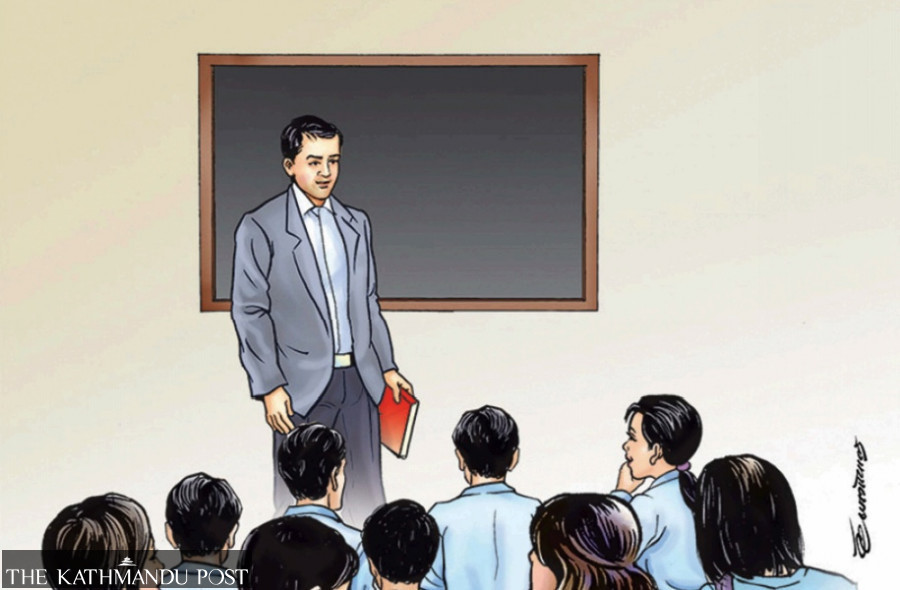National
Student unions push for merit-only teacher recruitment
Demand full competition as political parties press for reservations for temporary teachers.
Post Report
While mother parties are openly advocating for higher reservation quotas for temporary teachers in permanent postings, their student wings are demanding total free competition to fill the vacant positions.
Issuing a joint statement on Friday, 16 student unions affiliated with both the ruling and opposition parties, said that appointments through free competition are a must to appoint the competent teachers.
"Since teacher qualifications are a key standard for quality school education, the teacher recruitment must be done through a merit-based system in line with the constitutional principle of inclusion. The School Education Act must ensure that 100 percent of teacher appointments are made through open competition," the student organizations have demanded.
Their statement comes at a time when political parties, in line with the Nepal Teacher Federation, are openly lobbying for maximum reservation for temporary teachers.
The School Education Bill tabled by the government proposed that half of the vacant positions be filled through open competition and the remaining half through the internal competition. A subcommittee under the Education, Health and the Information Technology Committee of the House of Representatives had agreed to allocate 75 percent for open competition, and 25 percent to internal, amid reservations from some Nepali Congress lawmakers.
But, based on the understanding between Education Minister Rajhuji Pant and the Congress, the House committee broadly agreed to revise it to 60:40 between the free and internal competition. In one of the meetings on June 30, the Congress had even pushed to include a provision to give all the temporary teachers permanent postings for one time. However, others objected to it.
The discussion in the bill has halted since July 6. Though Pant sought five days for consultations, there has been no discussions for nearly a month now. House committee members blame the government’s reluctance as the sole reason for uncertainty of the bill.
With no response from the education minister, the House committee has started deliberations on the Media Council Bill leaving the School Education Bill aside. The federation has issued an August 5 ultimatum for the endorsement of the bill. However, with just four days remaining, the future of the bill languishes in uncertainty.
The 16 student unions also have warned against further delays in the promulgation of the law. They have also demanded that all three levels of government—federal, provincial, and local—significantly increase unconditional investment in school education to manage school staff and bring about qualitative transformation in public education.
Amid warnings from both the federation and student unions, private school operators have also stood against any kind legal provisions to regulate their operational modality. Issuing a statement, the National Private and Boarding Schools’ Association, Nepal, an umbrella organization of private school operators, has demanded that the School Education Act must not convert private schools into trusts (guthi). It has also claimed that private schools cannot be made non-profit or free.
"According to Nepal’s law, private schools currently operating under the Companies Act should continue to operate as such," the statement says. "The School Education Act must clearly state that schools operated under the Companies Act cannot be non-profit.”
The statement further points out that Nepal’s post-constitution vision is that of a socialist-oriented society, which can only be achieved by strengthening the public sector.
The High-Level National Education Commission, formed in 2018, had advised the government to transition private investment in school education into trust-based models over a period of ten years, in line with the constitution’s vision. The commission recommended managing the entire education system under a unified structure and gradually converting privately funded schools into service-oriented institutions within a decade.




 9.83°C Kathmandu
9.83°C Kathmandu













